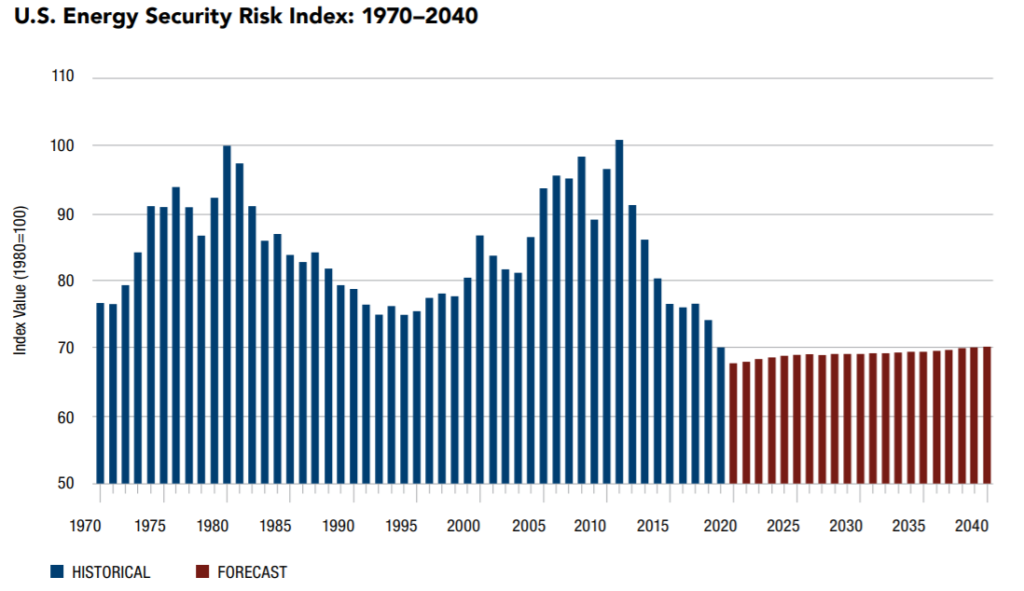Is the USA energy Secure?

Energy security is a critical aspect of a nation's stability and economic growth. It encompasses the availability, affordability, and reliability of energy sources that meet the country's needs. In this article, we will delve into the topic of US energy security, examining its current status, factors affecting it, the role of renewable energy in enhancing it, potential challenges, and policy recommendations for improvement.
- Understanding Energy Security
- Factors Affecting US Energy Security
- Current Status of US Energy Security
- Renewable Energy and its Role in Enhancing US Energy Security
- Challenges and Risks to US Energy Security
- Policy Recommendations for Improving US Energy Security
- Conclusion
- Frequently Asked Questions
Understanding Energy Security
Energy security refers to a country's ability to meet its energy demands consistently and efficiently while minimizing risks and vulnerabilities. It involves diversifying energy sources, ensuring a resilient energy infrastructure, and promoting sustainable practices.
Factors Affecting US Energy Security
Several factors influence the energy security of the United States. These include:
- Dependency on foreign oil
- Geopolitical tensions in major oil-producing regions
- Fluctuating oil and gas prices
- Technological advancements in energy production
- Environmental concerns
Current Status of US Energy Security
The United States has made significant strides in enhancing its energy security in recent years. The development of domestic shale oil and gas resources has reduced dependency on foreign oil. Additionally, advancements in renewable energy technologies have diversified the country's energy mix.
Renewable Energy and its Role in Enhancing US Energy Security
Renewable energy sources, such as solar, wind, and hydropower, play a crucial role in enhancing US energy security. By reducing reliance on fossil fuels, renewable energy mitigates the risks associated with price volatility, supply disruptions, and environmental impacts. Moreover, investing in renewable energy promotes job creation and stimulates economic growth.
Challenges and Risks to US Energy Security
Despite progress, there are still challenges and risks to US energy security. These include:
- Climate change impacts on energy infrastructure
- Uncertainty in energy policies
- Cybersecurity threats to energy systems
- Reliance on critical minerals for renewable energy technologies
Policy Recommendations for Improving US Energy Security
To enhance US energy security, policymakers can consider the following recommendations:
- Encouraging research and development of advanced energy technologies
- Promoting energy efficiency and conservation measures
- Investing in resilient energy infrastructure
- Fostering international cooperation on energy security
Conclusion
US energy security is a multifaceted issue that requires a comprehensive approach. By diversifying energy sources, embracing renewable energy, and addressing potential risks, the United States can achieve a more secure and sustainable energy future.
Frequently Asked Questions
1. What is energy security?
Energy security refers to a country's ability to consistently and efficiently meet its energy needs while minimizing risks and vulnerabilities.
2. Is the USA energy secure?
The USA has made significant progress in enhancing its energy security. However, challenges and risks, such as climate change impacts and cybersecurity threats, still exist.
3. How does renewable energy contribute to US energy security?
Renewable energy diversifies the energy mix, reduces reliance on fossil fuels, and mitigates risks associated with price volatility and supply disruptions.
4. What are some potential risks to US energy security?
Potential risks to US energy security include climate change impacts on infrastructure, uncertainty in energy policies, cybersecurity threats, and reliance on critical minerals for renewable energy technologies.

Leave a Reply